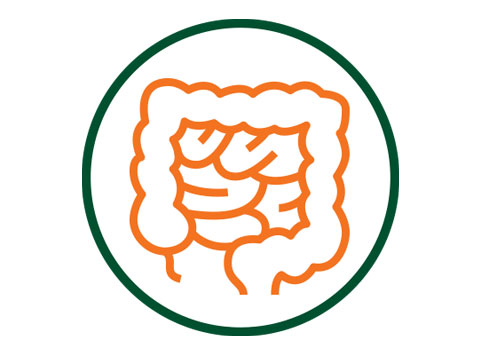Appointments
Call or complete our questionnaire to see if you meet the criteria for a colorectal cancer screening.
Call us at
(305) 243-8644
Or
Colorectal cancer, which includes colon and rectal cancers, is a leading cause of cancer-related death in men and women in the U.S., according to the American Cancer Society. It’s the country’s third most common cancer diagnosed in men and women, excluding skin cancer. Many people with colorectal cancer don’t notice symptoms until the disease is advanced – when it’s harder to treat or even untreatable. That’s why screening is so important.
When colorectal cancer is found early, it’s highly treatable and curable. The best way to find it is through regular screening. Regular colorectal cancer screening, starting at age 45, is the key to preventing colorectal cancer. Following screening recommendations can save your life.
What are the symptoms of colorectal cancer?
Most colorectal cancers begin as a growth (polyp) on the colon’s or rectum’s inner lining. Over time, some polyps (such as adenomatous polyps) can change into cancer. Screening allows doctors to find colorectal polyps and remove them before they develop into cancer. In many cases, removing polyps at colonoscopy is believed to prevent colorectal cancer from ever occurring. It also lets doctors discover cancer early before it spreads.
Many people don’t experience any colorectal cancer symptoms until the advanced stages of the disease. These symptoms are the same as common conditions like irritable bowel syndrome (IBS) or hemorrhoids, so people are less likely to be concerned.
Symptoms include:
- A change in bowel habits
- Abdominal discomfort, such as cramping and fullness
- Bloody stools (bright or dark red)
- Diarrhea, constipation, or a feeling that the bowel isn’t empty
- Iron-deficiency anemia (reduced red blood cells) that’s unexplained
- Narrower or thinner stools
- Tiredness
- Unexplained weight loss
See your doctor if you’re experiencing any of these symptoms.
Sylvester Colorectal Cancer Screening Program
At Sylvester Comprehensive Cancer Center, part of the University of Miami Leonard M. Miller School of Medicine, we offer advanced expertise and sophisticated testing to find colorectal cancer at the earliest stages. We’re one of only two National Cancer Institute (NCI)-designated cancer centers in the state of Florida and one of just 72 across the country. It’s comforting to know you’re working with a highly experienced team.
These are just a few reasons why patients depend on our expertise:
World-renowned cancer experts. If cancer is found, you work with colorectal cancer specialists who provide an accurate diagnosis and the most targeted treatments – including highly skilled minimally invasive surgeons. We offer leading-edge approaches you won't find anywhere else nearby.
Advanced diagnostic capabilities. We use sophisticated imaging equipment to find cancer at the earliest stages. We’re able to distinguish between normal and abnormal findings that are often misdiagnosed. Our team specializes in minimally invasive endoscopic approaches and performs a high volume of procedures.
Experienced endoscopic surgeons. Our surgeons have advanced experience in endoscopic procedures performed through the rectum, providing a less invasive approach to traditional surgery. These approaches offer less pain and scarring, a shorter hospital stay, and a faster recovery.
